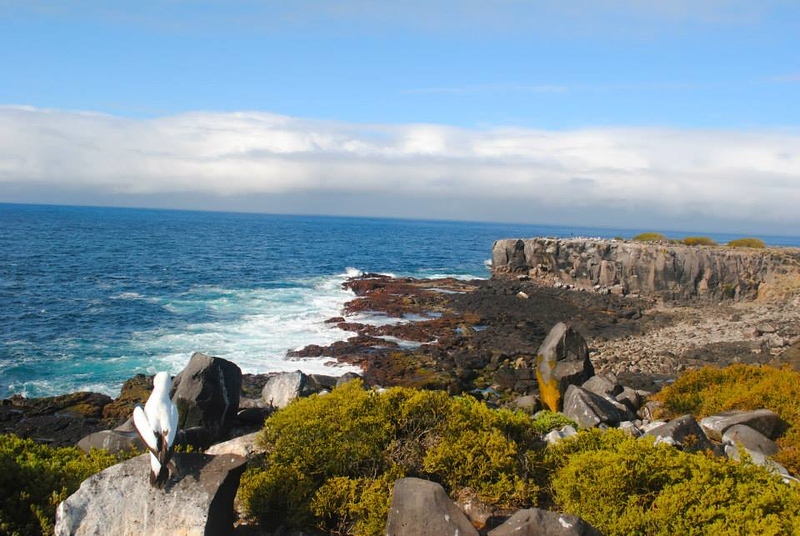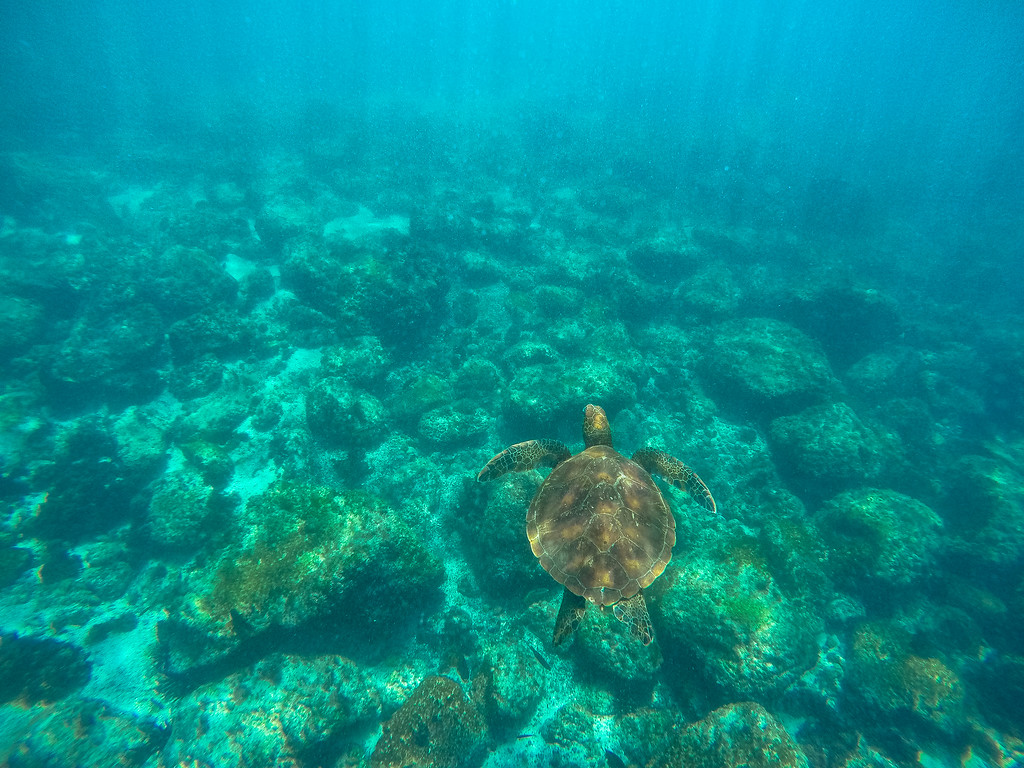The most ambitious citizen science project to document biological life in Galapagos

The Galapagos Science Center (GSC), a joint initiative between Universidad San Francisco de Quito (USFQ) and the University of North Carolina at Chapel Hill (UNC), will help run an innovative new project called Barcode Galapagos as a way to survey wildlife and plants using “genetic fingerprinting.” GSC, USFQ and the University of Exeter, UK have received funding from UK Research and Innovation (UKRI) through the Global Challenges Fund and the Newton Fund to catalog the archipelago’s famous biodiversity. GSC Co-Director, Dr. Carlos Mena, alongside Dr. Jaime Chaves and Dr. Diana Pazmiño will be leading the initiative for USFQ/GSC. Alongside support from the Biosecurity Agency of Galapagos (ABG) and the Galapagos Conservation Trust, Barcode Galapagos is the most ambitious citizen science project to document biological life in Galapagos, with all the data generated entirely by local people – a process known as Citizen Science – and processed within the islands. The barcode, a square or rectangular image consisting of a series of parallel black lines and white spaces of varying widths that can be read by a scanner, will then be used to create a DNA signature, or a genetic sequence that can be used to detect the presence of an organism and to distinguish that organism from all other species.
The social and scientific implications of this project are highly valuable for the islands and its community. The current COVID-19 pandemic has hit the Galapagos’ economy extremely hard, with the tourism industry continuing to struggle. This project will provide scientific knowledge necessary for the understanding and conservation of key places in Galapagos, while also alleviating the economic pressure of people who have lost their livelihood due to the current health crisis. Barcode Galapagos will provide capacity building, training, and employment in sampling, curation and the latest genetic techniques to approximately 50 hard-hit key workers in eco-tourism such as naturalist guides, fishermen and farmers. This will allow these members of the community to conduct vital capacity-building research that will provide the basis for measuring the direct and indirect impacts of the pandemic on biodiversity. Specifically, the project will:
- Use non-invasive 21st Century genetic barcoding techniques to catalogue the biodiversity of the main Galapagos Islands and surrounding marine reserve from microbial to mammal scales;
- Train locals in key field, lab and curatorial techniques, and employ them to undertake projects, which may also open new job opportunities in the future;
- Quantify the impacts of our approach for individual and societal-level well-being.

Barcoding in and of itself is important for a variety of reasons, especially in unique ecosystems such as the Galapagos Islands. The variety of life in a given area is fundamental to ecosystem stability as well as the services it can provide including eco-tourism. However, we have limited knowledge of most of the species that constitute such biodiversity, affecting our complete understanding of speciation as well as implementation of conservation efforts. The only way to solve this issue is through the use of cutting-edge genetic techniques.
Even for conspicuous animals, such as birds, history has taught us that it is challenging to define a species based on traditional methods. Molecular genetics has revealed hundreds of new species of birds, and there are thought to be hundreds more to be discovered. Molecular methods also allow us to define connectivity between populations, identify sub-species and uncover the genetic signature of individuals within a specific area. In turn, these methods allow us to study speciation in action, population connectedness and threats to population viability, as well as individuals used in captive breeding programs and even those that are illegally trafficked or caught. Molecular techniques are also the fastest way to identify plankton, the engine of our seas, and the only viable means of estimating the number and signatures of species at the base of the tree of life, such as microbes.
Barcode Galapagos therefore not only fills in important gaps in our biological knowledge of the islands but does this while boosting the local economy for those most hard hit by the pandemic. The hope is to lessen the negative impacts of illegal harvesting and instead strengthen conservation. Barcode Galapagos hopes to create a balance between biodiversity and the well-being of local inhabitants for the long term, and GSC feels privileged to help carry out this mission.
